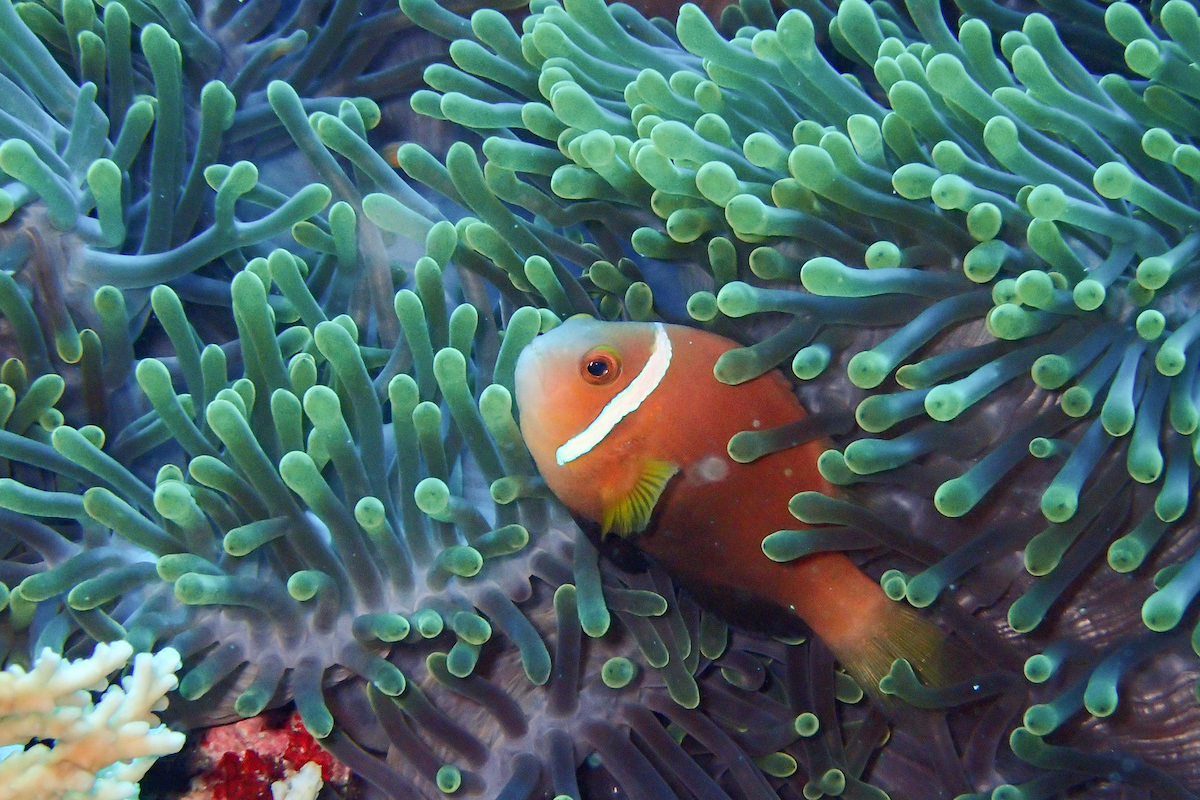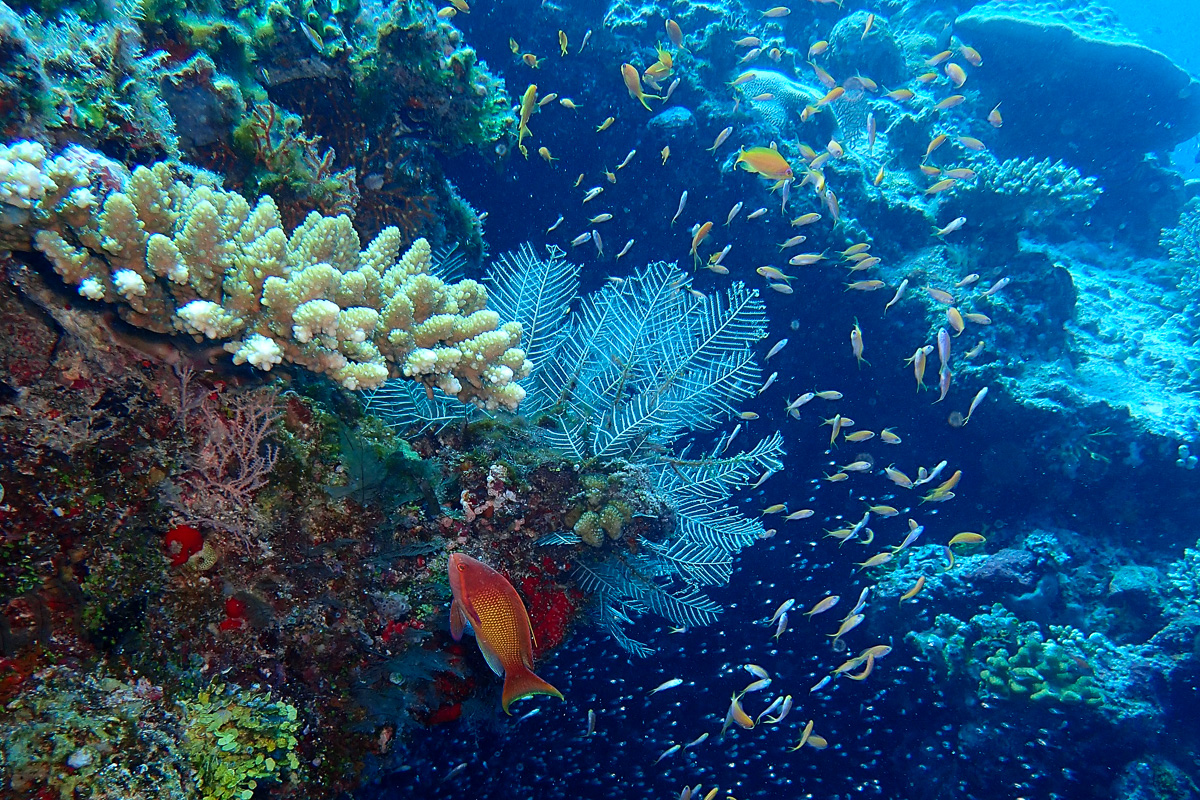ReeFISH
Discovering Coral Reef Fish Biodiversity
Despite occupying less than 0.1% of the world’s ocean surface, coral reefs are biodiversity hotspots hosting over 25% of marine species worldwide and providing invaluable services to humankind. These precious ecosystems are severely threatened due to rapid anthropogenic climate change and overexploitation of natural resources.
Through a combination of phylogenetic analyses, morphological measurements and population genetics, the ReeFISH project aims at understanding the ecological and evolutionary processes shaping fish biodiversity in coral reefs. Innovative methods will be used in this project, like an underwater stereo-camera system with extreme high quality to collect 3D morphological measurements of reef fishes. This data can be used to investigate the intra-specific morphological variations associated different habitats within coral reefs.

This deeper understanding is a prerequisite to assess the potential impacts of ongoing and future changes on these taxa and to inform on best management practices of these ecosystems for the future.

Publications and Talks:
Donati et al.: A process‐based model supports an association between dispersal and the prevalence of species traits in tropical reef fish assemblages. Ecography, 2019, doi:external page 10.1111/ecog.04537
Ottimofiore et al.: Responses of coral reef fishes to past climate changes are related to life-history traits. Ecology and Evolution, 2017, doi: external page 10.1002/ece3.2800
Leprieur et al.: Historical and contemporary determinants of global phylogenetic structure in tropical reef fish faunas. Ecography, 2016, doi: external page 10.1111/ecog.01638
Descombes et al.: Forecasted coral reef decline in marine biodiversity hotspots under climate change. Global Change Biology, 2015, doi: external page 10.1111/gcb.12868
Download Poster: rDay 2016 Zurich (PDF, 3.2 MB)